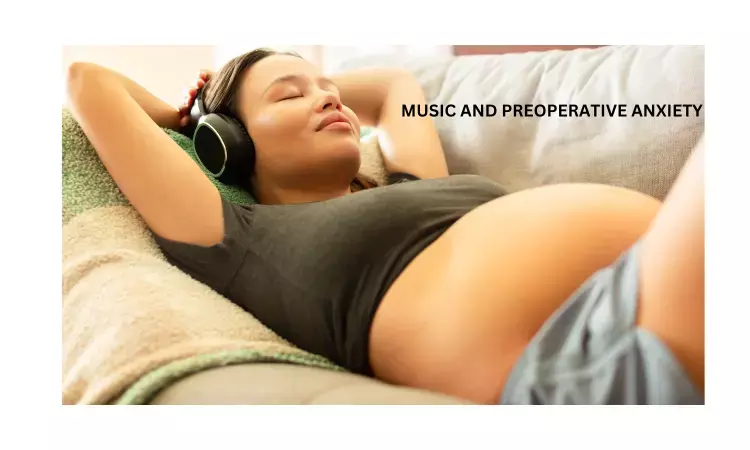- Home
- Medical news & Guidelines
- Anesthesiology
- Cardiology and CTVS
- Critical Care
- Dentistry
- Dermatology
- Diabetes and Endocrinology
- ENT
- Gastroenterology
- Medicine
- Nephrology
- Neurology
- Obstretics-Gynaecology
- Oncology
- Ophthalmology
- Orthopaedics
- Pediatrics-Neonatology
- Psychiatry
- Pulmonology
- Radiology
- Surgery
- Urology
- Laboratory Medicine
- Diet
- Nursing
- Paramedical
- Physiotherapy
- Health news
- Fact Check
- Bone Health Fact Check
- Brain Health Fact Check
- Cancer Related Fact Check
- Child Care Fact Check
- Dental and oral health fact check
- Diabetes and metabolic health fact check
- Diet and Nutrition Fact Check
- Eye and ENT Care Fact Check
- Fitness fact check
- Gut health fact check
- Heart health fact check
- Kidney health fact check
- Medical education fact check
- Men's health fact check
- Respiratory fact check
- Skin and hair care fact check
- Vaccine and Immunization fact check
- Women's health fact check
- AYUSH
- State News
- Andaman and Nicobar Islands
- Andhra Pradesh
- Arunachal Pradesh
- Assam
- Bihar
- Chandigarh
- Chattisgarh
- Dadra and Nagar Haveli
- Daman and Diu
- Delhi
- Goa
- Gujarat
- Haryana
- Himachal Pradesh
- Jammu & Kashmir
- Jharkhand
- Karnataka
- Kerala
- Ladakh
- Lakshadweep
- Madhya Pradesh
- Maharashtra
- Manipur
- Meghalaya
- Mizoram
- Nagaland
- Odisha
- Puducherry
- Punjab
- Rajasthan
- Sikkim
- Tamil Nadu
- Telangana
- Tripura
- Uttar Pradesh
- Uttrakhand
- West Bengal
- Medical Education
- Industry
Music may help relieve perioperative anxiety and acute pain in women undergoing elective cesarean delivery

Avinash Kakde, and team reports that perioperative music listening was associated with reduction in anxiety and pain catastrophizing following cesarean delivery. Researchers aimed to determine whether perioperative music listening reduces anxiety, acute pain, and pain catastrophizing scale (PCS) scores following elective cesarean delivery under spinal anesthesia.
The study is published in BMC Anesthesiology.
Around 25% of parturients are known to experience anxiety during pregnancy, which is associated with increased risk of maternal complications e.g., pre-eclampsia and emergency cesarean delivery. Music listening has emerged as a safe and efficacious treatment modality to reduce perioperative anxiety associated with cesarean delivery.
Researchers did randomization as music listening and control groups, baseline patient characteristics, visual analog scale-anxiety (VAS-A) scores, pain scores, PCS total and sub-scores, and music preferences were collected preoperatively. Before surgery, parturients in the experimental group listened to music of their own choice for 30 min.
Music listening was continued during administration of spinal anesthesia and cesarean delivery, and for 30 min following surgery. Postoperative VAS-A score, acute pain score, PCS scores, music preferences, satisfaction score, and feedback were recorded.
The key findings of the study are
• They analyzed 108 parturients (music: n = 53; control: n = 55). Music listening was associated with reduced postoperative VAS-A (mean difference (MD) -1.43, 95%CI -0.63 to -2.22).
• PCS total score (MD -6.39, 95%CI -2.11 to -10.66), PCS sub-scores on rumination (MD -1.68, 95%CI -0.12 to -3.25), magnification (MD -1.53, 95%CI -0.45 to -2.62), and helplessness (MD -3.17, 95%CI -1.29 to -5.06) sub-scores.
• There was no significant difference in postoperative acute pain scores. The majority (> 95%) of parturients reported “excellent” and “good” satisfaction with music listening, and most provided positive feedback.
The researchers concluded that “Perioperative music listening was associated with reduced postoperative anxiety and lower pain catastrophizing. Based on the good patient satisfaction and positive feedback received, the use of music listening in the obstetric setting is recommended.”
Reference: Kakde, A., Lim, M.J., Shen, H. et al. Effect of music listening on perioperative anxiety, acute pain and pain catastrophizing in women undergoing elective cesarean delivery: a randomized controlled trial. BMC Anesthesiol 23, 109 (2023). https://doi.org/10.1186/s12871-023-02060-w
MSc. Neuroscience
Niveditha Subramani a MSc. Neuroscience (Faculty of Medicine) graduate from University of Madras, Chennai. Ambitious in Neuro research having worked in motor diseases and neuron apoptosis is interested in more of new upcoming research and their advancement in field of medicine. She has an engrossed skill towards writing and her roles at Medical dialogue include Sr. Content writer. Her news covers new discoveries and updates in field of medicine. She can be reached at editorial@medicaldialogues.in
Dr Kamal Kant Kohli-MBBS, DTCD- a chest specialist with more than 30 years of practice and a flair for writing clinical articles, Dr Kamal Kant Kohli joined Medical Dialogues as a Chief Editor of Medical News. Besides writing articles, as an editor, he proofreads and verifies all the medical content published on Medical Dialogues including those coming from journals, studies,medical conferences,guidelines etc. Email: drkohli@medicaldialogues.in. Contact no. 011-43720751


